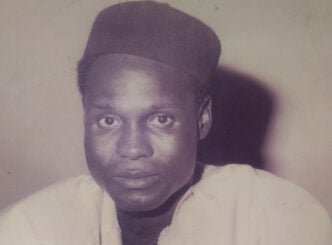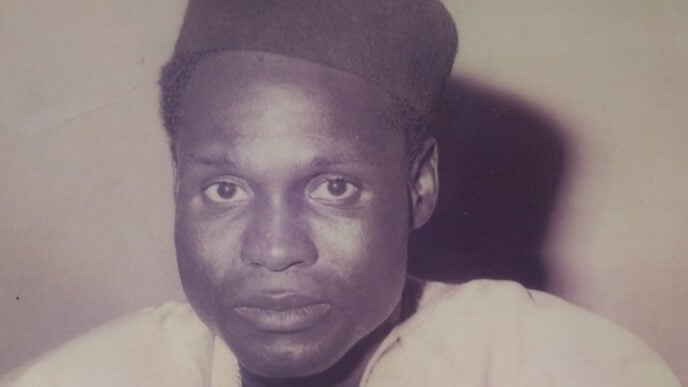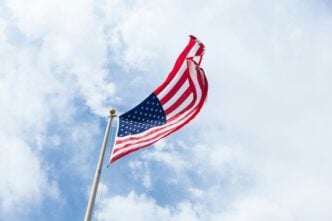Yusuf Tuggar, Nigeria's minister of foreign affairs
BY SIMBO OLORUNFEMI
“Our idea is to avoid the booby trap of entangling alliances or ideological over-alignment, but rather to focus on issue-based relationships and partnerships of purpose.” – Yusuf Maitama Tuggar
When the announcement of Yusuf Maitama Tuggar as Nigeria’s minister of Foreign Affairs was made just over two years ago, it was hailed in foreign policy circles as one of the most imaginative choices in President Bola Tinubu’s cabinet. His solid educational background in international relations, with two degrees in the field in the back pocket, one being a Master’s degree from Cambridge University, struck the right chord with those looking at Nigeria to establish a stronger presence on the global arena. Then, his extensive experience as a seasoned diplomat, with an impressive on-field experience and current insight into the dynamics of global politics, caught the eye of others.
Having first served as a Member of the House of Representatives for Gamawa Federal Constituency from 2007 – 2011, Tuggar had only just concluded a six-year tour of duty as Nigeria’s Ambassador to the Federal Republic of Germany. Regarded as one of the bright spots of his class, Ambassador Tuggar had received applause for different initiatives and accomplishments during his tenure. This includes facilitating the return of ownership of 1,130 Benin Bronzes to Nigeria by the German government and facilitating the delivery of important commercial agreements for high-level projects in Nigeria. On the back of that, expectations were high that Tuggar’s experience in business, politics, and diplomacy would come in handy in ushering in a positively vibrant era for Nigeria in its engagement with the world.
Yusuf Tuggar appears to have read the memo, as he did not waste time in embracing the role, not just as an Actor, but as one who came prepared with his own philosophical framework for interpreting phenomena, interrogating the world, and shaping Nigeria’s foreign policy. For the first time in a long time, we had the Foreign Affairs Minister putting out his thoughts in a scholarly article entitled, “Foreign Policy and the Path to Peace in a Dangerous Neighbourhood”, published by major newspapers in Nigeria, which brought a measure of clarity to his thoughts and the philosophical premise propelling Nigeria’s foreign policy.
Advertisement
Tuggar’s view of the world and the place of Nigeria in it is that, “in reality, the contemporary nation-state system is highly competitive and Nigeria exists in a self-help world. Our Constitution and international laws are meant to serve as guardrails in navigating the system. And by virtue of our size, we have the additional responsibility of being the regional power. Regardless of how some may try to diminish our standing, it is the way other countries perceive us. Our Constitution further reifies this leadership role right from the preamble – dedicating ourselves to promoting inter-African solidarity, to the foreign policy objectives: promotion of African integration and support for African unity and elimination of discrimination in all its manifestations.”
On navigating the ‘dangerous neighbourhood’, Tuggar rightly situates the current circumstances on the shoulders of a combination of factors not of Nigeria’s making, but which it is forced to contend with. “The Tinubu administration comes at a time when an interlocking suite of occurrences has made our neighbourhood less secure; the implosion of Libya, failure of the EU Sahel Strategy, terrorism and criminal gangs, effects of climate change, and population explosion. Nigeria did not create these challenges and was equally contending with its own domestic issues as these challenges escalated,” Tuggar explained.
It was on the back of this understanding that Minister Yusuf Tuggar articulated his doctrine of strategic autonomy and the 4Ds framework (Democracy, Development, Demography, and Diaspora), through which he has led the charge for a redefinition of Nigeria’s foreign policy, in line with President Bola Tinubu’s reforms-led economic agenda and worldview, which prioritises economic diplomacy. It is a strategic framework with emphasis on an independent, national interest-driven diplomacy, with a focus on national sovereignty and regional cooperation, while mindful of the fact that “when our interdependence sovereignty overlaps, we equally have a right to exercise control over our borders in those cases where neighbours face insurgencies that significantly compromise territorial integrity and state authority”, Tuggar argues.
Advertisement
Even in the face of pressure from some quarters, Tuggar has stridently maintained that Nigeria cannot compromise its independence to please knee-jerk, poorly thought-out policies from elsewhere. “We have the right and the basis to engage with as many countries as possible to trade, and our relationships are not based on ideological considerations; they’re based on interests, beginning with our national interests…So we trade with the US, we trade with China, we trade with Brazil, we trade with India, and our focus is not necessarily on one axis or the other, especially in a multipolar world,” he argued.
That might have ruffled some feathers, but feathers cannot be ruffled if Nigeria must maximise and leverage Nigeria’s demographic, diaspora, and economic assets to achieve its foreign policy objectives, as Yusuf Tuggar, under the leadership of President Tinubu, has set out. It is about reassuring all partners that Nigeria remains equitable in its dealings with the world, with its eyes only trained on national interest, peace in its neighbourhood, global peace, and prosperity. On trade, Tuggar argues for an even field of play. “Rich countries should not approach trade with Africa as a game of Minecraft in which they secure supplies of natural resources, but rather as a relationship based on mutual respect and the need for Africa to develop,” he argues.
What Tuggar has done is to find a way to synthesise and frame Nigeria’s foreign policy objectives around economic diplomacy by embedding development goals within diplomatic missions. In the last two years, he has pivoted more in the direction of unlocking trade corridors, securing foreign investments, and initiating partnerships that can help accelerate the process of infrastructural development, as well as generating and expanding opportunities for the inflow of businesses into the country. This is an area, a priority one for Nigeria, in which many had expected him to focus; it is gladdening to see that it is one that he has fully led the charge, with appreciable results following.
Yusuf Tuggar’s approach to the management of Nigeria’s foreign policy, which intertwines democracy, development, demography, and diaspora engagement, is innovative and assertive. It not only affirms Nigeria’s position as a global actor but also adumbrates its commitment to sustainable progress, regional integration, and strategic autonomy. “The fulcrum of the Tinubu administration’s foreign policy is Strategic Autonomy, providing us with the clarity to engage with any and all nations on the basis of our national interests and not those of others. As a nation, Nigeria is adult and sophisticated enough to deal with countries without being unduly influenced, because that has been part of our historical and civic tradition. You cannot cure an illness by picking which symptoms to consider and which to ignore,” Tuggar argues, and rightly so, too.
Advertisement
Tuggar is right to reject the binary ideological construct some seek to force on an increasingly complex and multi-dimensional global landscape, in favour of partnerships founded on Nigeria’s national interest. Tuggar’s pragmatic approach enables Nigeria to engage with diverse global actors with greater flexibility, balancing geopolitics with developmental imperatives, while maintaining alliances to help achieve Nigeria’s foreign policy objectives.
Olorunfemi is a specialist on Nigeria’s foreign policy, a communications consultant, and managing editor of Africa Enterprise. Email: [email protected]
Views expressed by contributors are strictly personal and not of TheCable.




